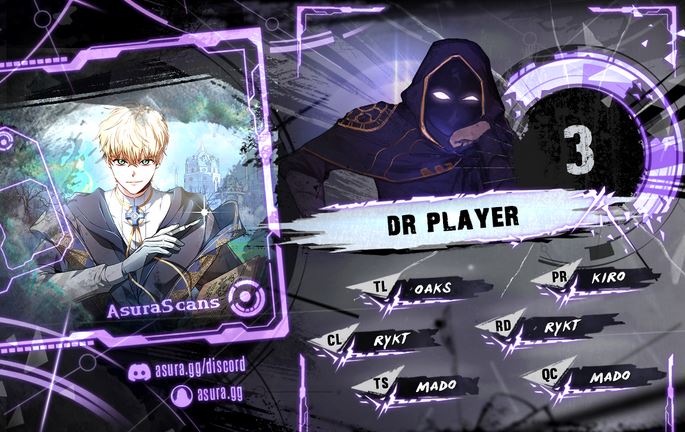Finding the right doctor can feel like a daunting quest. With so many options and varying specialties, how do you know who will truly meet your needs? Your health deserves the best care possible, and that begins with choosing a doctor who’s in tune with your unique situation. Whether you’re looking for someone to help manage ongoing conditions or just need an annual check-up, understanding what makes a good fit is essential.
Welcome to Doctor Player—a guide designed to simplify this process for you. Here, we’ll unpack everything from the different types of doctors available to tips on building a strong relationship with healthcare professionals. Let’s dive into what it takes to find not just any doctor but the right one for you!
The Importance of Having a Good Doctor
A good doctor is more than just a healthcare provider; they are your trusted partner in health. Having someone you can rely on for advice, treatment, and support makes all the difference.
When you have a physician who understands your medical history and personal concerns, it leads to better health outcomes. They can tailor treatments specifically for you rather than applying a one-size-fits-all approach.
Regular communication with a competent doctor fosters trust and encourages open discussions about symptoms or lifestyle changes. This relationship empowers patients to take charge of their own well-being.
Furthermore, a solid partnership with your physician means you’re less likely to face unnecessary tests or misdiagnoses. A good doctor listens actively and becomes familiar with what’s normal for you—making them crucial in detecting issues early before they escalate.
Types of Doctors: Primary Care vs. Specialists
Navigating the world of healthcare can be daunting. Understanding the difference between primary care doctors and specialists is crucial.
Primary care physicians (PCPs) are your first line of defense in health matters. They focus on overall wellness, conducting routine check-ups, managing chronic conditions, and guiding you through various health issues. Their role is to build a long-term relationship with you.
On the other hand, specialists have advanced training in specific areas like cardiology or dermatology. When your PCP identifies a particular concern that requires expert attention, they will refer you to a specialist for targeted treatment.
Choosing the right type of doctor depends on your needs. If you’re looking for comprehensive care and preventive measures, a primary care physician fits the bill. But if it’s time to dive deeper into specialized treatment or diagnosis, seeking out an expert becomes essential.
Factors to Consider when Choosing a Doctor
Choosing the right doctor is a personal decision that can significantly impact your health. Start by considering their specialty and whether it aligns with your needs. If you have chronic conditions, finding someone experienced in those areas is crucial.
Location matters too. A nearby clinic makes visits easier, especially during emergencies.
Don’t overlook office hours and availability as well; flexibility can make a difference in maintaining consistency in care.
Evaluate the doctor’s approach to treatment. Some prefer traditional methods while others may offer holistic alternatives.
Consider patient reviews or testimonials for insight into their practice style and bedside manner. Trusting your instincts about comfort and communication will lay the foundation for a productive relationship with your healthcare provider.
Finding Potential Doctors in Your Area
Finding the right doctor can feel overwhelming, but it starts with a simple search. Begin by tapping into online resources. Websites like Healthgrades or Zocdoc offer insights and reviews from patients.
Don’t forget to check your insurance provider’s directory. This ensures that your visits won’t break the bank.
Local hospitals often have referral services as well. They can direct you to specialists and primary care physicians in your area.
Ask friends, family, or co-workers for recommendations too. Personal experiences can guide you toward compassionate care.
Social media platforms and community forums are also valuable tools for finding potential doctors nearby. Engaging with local groups can reveal hidden gems in healthcare providers.
Consider using mobile apps dedicated to health services that allow you to filter options based on location and specialty preferences.

Researching the Credentials and Experience of a Doctor
When choosing a doctor, it’s crucial to investigate their credentials and experience. Twitch by scrutiny if they are board-certified in their field. This certification indicates that they meet specific standards of education and expertise.
Don’t overlook the importance of years in practice. A seasoned physician often brings valuable insights gained from real-world experience. Researching any areas of specialization can also provide peace of mind, especially for complex health issues.
Online platforms and medical boards offer reviews and ratings from other patients. These testimonials shed light on a doctor’s approach to care, communication style, and reliability.
Furthermore, consider any hospital affiliations or community involvement. A doctor connected with reputable institutions may indicate high-quality care standards as well as commitment to ongoing education in their field.
Taking these steps will ensure you find a qualified professional who aligns with your healthcare needs.
Questions to Ask During Your First Appointment
Your first appointment with a new doctor is crucial. It sets the tone for your future interactions and care.
Begin by asking about their approach to treatment. Understanding their philosophy can help you gauge compatibility.
Inquire about their experience with specific conditions or procedures relevant to you. This ensures they are equipped to handle your health needs effectively.
Don’t forget to discuss communication styles. Ask how they prefer patients reach out with questions or concerns, be it via phone, email, or patient portals.
Explore preventive care practices as well. A proactive doctor emphasizes wellness alongside treating existing issues.
Ask about office policies regarding follow-ups and referrals. Knowing what to expect can ease future processes in managing your health journey.
Building a Strong Relationship with Your Doctor for Better Health
Establishing a strong relationship with your doctor is essential for optimal health. Trust and open communication form the backbone of this connection. When you feel comfortable discussing concerns, it fosters better understanding.
Regular visits create familiarity. Over time, your doctor learns about your medical history and lifestyle choices. This insight can lead to more personalized care tailored just for you.
Be proactive in appointments. Ask questions and express any worries you have about treatments or medications. Your input is invaluable; it helps shape decision-making.
Listening plays an equally vital role. Pay attention to your doctor’s advice and recommendations, as they are based on expertise and experience.
A good rapport encourages follow-ups too. Whether checking on treatment progress or addressing new symptoms, staying connected ensures no detail gets overlooked in your journey toward better health.
What to Do if You’re Not Satisfied with Your Doctor
If you’re feeling unhappy with your doctor, it’s essential to take action. Start by identifying specifically what bothers you. Is it their communication style? Or perhaps you feel unheard during appointments? Understanding the root of your dissatisfaction is vital.
Next, consider having an open conversation with your doctor. Expressing concerns can sometimes lead to a better understanding and improved relationship
If that doesn’t help, don’t hesitate to seek a second opinion or find another healthcare provider altogether. Look for someone whose approach aligns more closely with your expectations.
Before making any decisions, consult friends or family for recommendations. Personal experiences often guide us toward trustworthy professionals in the medical field.
Prioritize your health and wellbeing above all else; finding the right fit is worth the effort.
Conclusion
It’s more than just a name on a prescription pad; it’s about having someone who understands your unique needs and circumstances. The right healthcare professional can make all the difference in your wellness journey.
When searching for a physician, consider their specialties, credentials, and how well they communicate. Building rapport with your doctor creates an environment where you feel comfortable discussing sensitive issues. Don’t hesitate to ask questions during that first appointment—it’s crucial to establish trust from the start.
